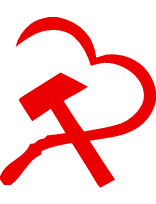

oh huh something I was reading a book about recently. In addition to everyone else’s excellent comments I wanna point to James Harris’ The Great Urals: Regionalism and the Evolution of the Soviet System because it completely upends the traditional scholarship of the purges.
Here is a libgen link to it: https://libgen.is/book/index.php?md5=E10CBD3C52CDF7D5D258AC666D67FAB6
I’m gonna copy the description from libgen to emphasize I’m not editorializing when i sing the book’s praises:
Political histories of the Soviet Union have portrayed a powerful Kremlin leadership whose will was passively implemented by regional Party officials and institutions. Drawing on his research in recently opened archives in Moscow and the Urals—a vast territory that is a vital center of the Russian mining and metallurgy industries—James R. Harris overturns this view. He argues here that the regions have for centuries had strong identities and interests and that they cumulatively exerted a significant influence on Soviet policy-making and on the evolution of the Soviet system.After tracing the development of local interests prior to the Revolution, Harris demonstrates that a desperate need for capital investment caused the Urals and other Soviet regions to press Moscow to increase the investment and production targets of the first five year plan. He provides conclusive evidence that local leaders established the pace for carrying out such radical policies as breakneck industrialization and the construction of forced labor camps. When the production targets could not be met, regional officials falsified data and blamed “saboteurs” for their shortfalls. Harris argues that such deception contributed to the personal and suspicious nature of Stalin’s rule and to the beginning of his onslaught on the Party apparatus.Most of the region’s communist leaders were executed during the Great Terror of 1936–38. In his conclusion, Harris measures the impact of their interests on the collapse of the communist system, and the fate of reform under Gorbachev and Yeltsin.
In very dry, academic writing, with constant, painstaking reference to the archival sources, Harris lays out facts building to his conclusion that there was a massive USSR wide conspiracy, and as the NKVD was sent in to uncover it the conspirators covered it up harder (including using the non-violent purges to purge non-corrupt officials, scientists, managers, workers). The conspirators systemically distorted production potential of their territory; repeatedly, in several different regions, leaders encouraged overestimation of the quantity of ore, and often the quality of ore deposits. Some of the copper and coal they claimed would be the basis of soviet industry literally couldn’t even be used for industrial production. Hundreds of millions of rubles were wasted on facilities, and the conspirators covered it up harder (for example, scientists who disagreed with inflated guesses were–purged by the clique!). This conspiracy wasn’t a Nazi plot, or a trotskyist plot, or an SR plot, or a tsarist plot–all of this was done to cover up regional authorities’ incompetence and corruption (which dated back to literally 1917).
This excerpt from the conclusion is a good summary of his conclusions:

I would only add that by “not permitted to cite “objective reasons” for economic problems” Harris means "they had lied so, so much over the last 15 years that when Stalin ordered for much lower, more reasonable (based on the numbers central had) quotas but demanded absolute fullfilment of them, the regional authorities still couldn’t meet quotas and explaining why would reveal their conspiracy.
Another highlight was the financial commisariat giving the gulags less than 10% of the money the centre ordered them to (it took years for the centre to find out, thousands died). Yet another highlight was the Ukrainian regional authorities (which ofc  , death to him, was high up in) using central orders for dekulakization to eradicate any peasants they felt unruly (they made a profitable partnership with the ural factory managers who needed forced labour). Similarly, regional authorities used coercion in collectivization even in periods when the centre was repeatedly ordering them not to.
, death to him, was high up in) using central orders for dekulakization to eradicate any peasants they felt unruly (they made a profitable partnership with the ural factory managers who needed forced labour). Similarly, regional authorities used coercion in collectivization even in periods when the centre was repeatedly ordering them not to.









damn to think that image has haunted my dreams for over four years now